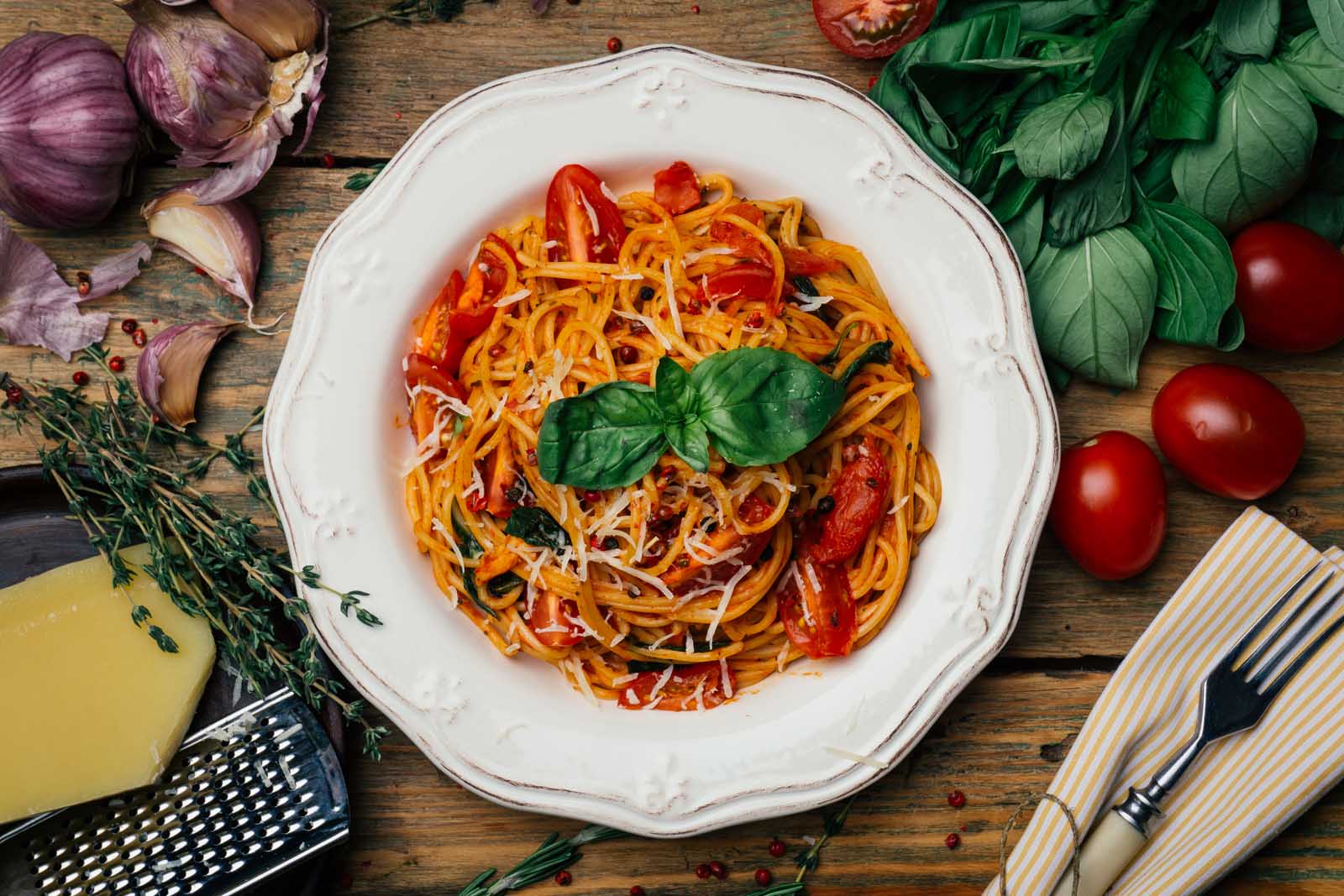
Italian cuisine is more than just pizza and pasta; it's a rich tapestry of flavors, traditions, and history. Did you know that Italy boasts over 400 types of cheese? From the creamy mozzarella to the sharp pecorino, each region has its own specialties. Olive oil is another staple, with Italy producing some of the finest in the world. Tomatoes, introduced in the 16th century, became a cornerstone of many dishes. Wine lovers will be thrilled to learn that Italy is one of the largest wine producers globally, offering a variety of reds, whites, and sparkling wines. Gelato, the Italian version of ice cream, is a must-try, with its smooth texture and intense flavors. Ready to dive into more delicious facts about Italian cuisine? Let's get started!
Italian Cuisine: A Culinary Journey
Italian cuisine is renowned worldwide for its rich flavors, fresh ingredients, and traditional recipes. Let's dive into some fascinating facts about this beloved culinary tradition.
Historical Roots
Italian cuisine has a deep history that influences its modern-day dishes.
- Ancient Origins: Italian food dates back to the 4th century BC, with influences from ancient Greek, Roman, and Etruscan cultures.
- Tomato Introduction: Tomatoes, now a staple in Italian dishes, were introduced to Italy in the 16th century from the Americas.
- Pasta Evolution: Pasta, a cornerstone of Italian cuisine, was first documented in Sicily in 1154.
Regional Diversity
Italy's diverse regions contribute to a wide variety of flavors and dishes.
- Northern Cuisine: Northern Italy is known for its rich, creamy dishes like risotto and polenta.
- Southern Flavors: Southern Italy offers bold, spicy flavors with dishes like pizza and pasta alla Norma.
- Sicilian Influence: Sicily's cuisine blends Italian, Greek, and Arab influences, featuring ingredients like citrus, saffron, and almonds.
Iconic Dishes
Certain dishes have become synonymous with Italian cuisine.
- Pizza Margherita: Named after Queen Margherita of Savoy, this pizza features tomatoes, mozzarella, and basil to represent the Italian flag.
- Lasagna: This layered pasta dish, originating from Naples, is a comfort food favorite worldwide.
- Spaghetti Carbonara: A Roman classic, carbonara combines eggs, cheese, pancetta, and pepper for a creamy delight.
Ingredients and Techniques
Italian cooking emphasizes fresh, high-quality ingredients and traditional techniques.
- Olive Oil: Extra virgin olive oil is a staple in Italian cooking, used for everything from frying to dressing salads.
- Parmigiano-Reggiano: Known as the "King of Cheeses," this hard cheese is aged for at least 12 months.
- Fresh Herbs: Basil, oregano, and rosemary are commonly used to enhance flavors in Italian dishes.
Italian Desserts
Italian cuisine isn't complete without its delectable desserts.
- Tiramisu: This coffee-flavored dessert, made with layers of mascarpone cheese and ladyfingers, is a global favorite.
- Gelato: Italian ice cream, known for its dense and creamy texture, comes in a variety of flavors.
- Cannoli: Originating from Sicily, these tube-shaped pastries are filled with sweet ricotta cheese.
Italian Dining Culture
Dining in Italy is a social and leisurely experience.
- Family Meals: Meals are often enjoyed with family and friends, emphasizing togetherness and conversation.
- Multiple Courses: Traditional Italian meals include several courses, starting with antipasti and ending with dessert.
- Coffee Rituals: Italians take their coffee seriously, with espresso being a popular choice after meals.
Wine and Beverages
Italy is also famous for its wine and unique beverages.
- Wine Production: Italy is one of the world's largest wine producers, with regions like Tuscany and Piedmont being particularly renowned.
- Prosecco: This sparkling wine from the Veneto region is often enjoyed as an aperitif.
- Limoncello: A lemon liqueur from Southern Italy, typically served chilled as a digestif.
Festivals and Celebrations
Italian cuisine plays a central role in various festivals and celebrations.
- Sagra Festivals: These local festivals celebrate specific foods, such as truffles, chestnuts, or pasta.
- Christmas Feasts: Traditional Christmas meals include dishes like tortellini in brodo and panettone.
- Easter Delicacies: Easter celebrations feature special foods like lamb, artichokes, and colomba cake.
Modern Influences
Italian cuisine continues to evolve while staying true to its roots.
- Fusion Cuisine: Modern Italian chefs experiment with fusion cuisine, blending traditional Italian flavors with global influences.
- Farm-to-Table: The farm-to-table movement emphasizes fresh, locally sourced ingredients, a concept deeply rooted in Italian cooking.
- Michelin Stars: Italy boasts numerous Michelin-starred restaurants, showcasing the country's culinary excellence.
The Final Bite
Italian cuisine is more than just food; it's a celebration of culture, history, and family. From the rich flavors of pasta and pizza to the delicate taste of gelato, each dish tells a story. The Mediterranean diet, rooted in Italian traditions, is known for its health benefits, emphasizing fresh ingredients like olive oil, tomatoes, and seafood. Regional diversity means you'll find unique dishes in every corner of Italy, from Sicilian cannoli to Tuscan ribollita. Italian wines, like Chianti and Prosecco, perfectly complement these culinary delights. Whether you're dining in a rustic trattoria or a high-end ristorante, the essence of Italian cuisine remains the same: simplicity, quality, and passion. Next time you enjoy a plate of spaghetti or a slice of Margherita pizza, remember you're partaking in a rich tradition that has delighted taste buds for centuries. Buon appetito!
Was this page helpful?
Our commitment to delivering trustworthy and engaging content is at the heart of what we do. Each fact on our site is contributed by real users like you, bringing a wealth of diverse insights and information. To ensure the highest standards of accuracy and reliability, our dedicated editors meticulously review each submission. This process guarantees that the facts we share are not only fascinating but also credible. Trust in our commitment to quality and authenticity as you explore and learn with us.


